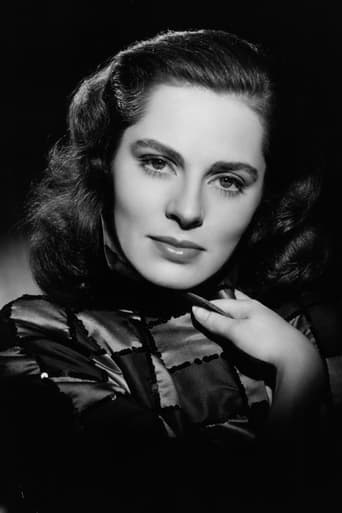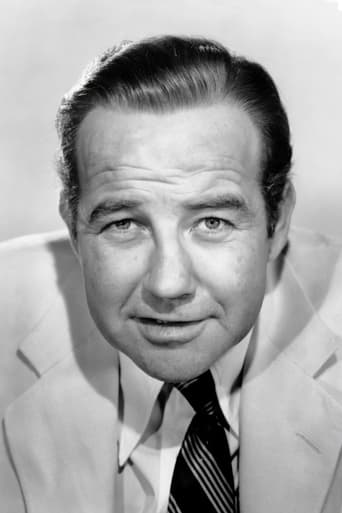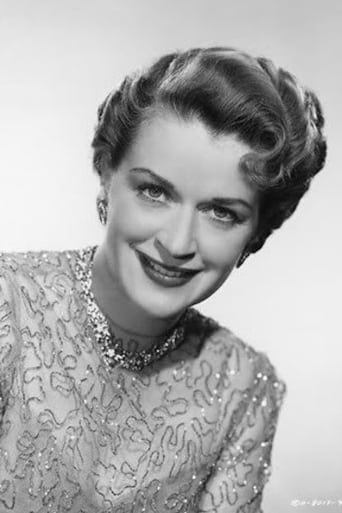Sameer Callahan
It really made me laugh, but for some moments I was tearing up because I could relate so much.
Ezmae Chang
This is a small, humorous movie in some ways, but it has a huge heart. What a nice experience.
Paynbob
It’s fine. It's literally the definition of a fine movie. You’ve seen it before, you know every beat and outcome before the characters even do. Only question is how much escapism you’re looking for.
Janis
One of the most extraordinary films you will see this year. Take that as you want.
BSK
This review will not be centered on technical or artistic aspects because others have done so and there´s no need to repeat; it is added to supply the information the film fails to give to round the story.When watching this psychological story with supernatural accents about two human beings meeting and helping each other cope with their mutual ghosts (a recent war widow and a biochemistry scientist diagnosed with epilepsy) it struck me, besides the great athmosphere helped by Franz Waxman´s music, that several facts remain unexplained and are left unsolved : the dead husband´s voice haunting his young widow, her sister´s attitude towards life and Ann, the dramatism assigned to being an epileptic which is here equalled to a death sentence, and what comes after the hurricane at the end. All these questions remain unexplained in the movie.All of them are answered in the novel by Philip Wylie.
The book is more centered on the metaphysical consideration of life after death and the supernatural phenomena than the picture. There are several more than Bill´s voice and also happen to Galen himself once, troubling him and, as the intellectual scientist he is, making himself both question and discuss them with Ann, friend artist Shawn (who also recalls a couple of unusual experiences himself) and his Psychiatrist and close friend Dr. Johann Altheim (one wonders why they changed the Swiss doctor´s leading and key role, purely anecdotic in the film, for his American colleague Dr. Poole). It will in fact be the inquisitive and open-minded Psychiatrist who will in the end find the answer about the mystery haunting the Gracey mansion, shortly before the hurricane breaks out. This secret is left out of the plot, taking half of the mystery and motivation off.At one point Altheim tells Galen (approximated) "John, you are an architect. You build new structures in your mind where people want to live. Interesting people come in and interesting things happen". That gives us a clue not only about Galen´s personality but about him taking interest in the metaphysical events. Shawn, by the way, is not only the commercially successful unconventional artist but has a darker artistic side not precisely socialist.
Lisa, Ann´s sister (Gail in the novel), is so seductive, hedonistic and selfish because she can´t cope with a trauma from her past, one which is connected to the haunted house mystery. It is quite nonsense watching her in the picture acting as she does and towards Ann without much reason for it. Epilepsy as a fatal illness ? Well, back in the 40s there were limited options for resistant cases. Patients not responding to potassium bromide or barbiturates (phenobarbital = Luminal) had only phenytoin (discovered in 1938) to try until II World War ended. The original story happens during the war, that´s why Ann is recently widowed. SPOILER : We are shown that Galen suffers from partial disconnection crises and finds out that he is allergyc to the drug. He later suffers a serious convulsion on the beach. This means the illness is progressing (END OF SPOILER). What should be added is that he had epileptic relatives that ended in mental hospitals. Also that he was turned down by Dr. Poole when applying for military service. AND that´s why he is scared and has even suicidal thoughts at one point, why he is reluctant to make his mind about Ann, and why he says that "death is not the worst thing that can happen to a man, only the last".Finally - the hurricane. It breaks out at the right point, when the truth is known by all, when Galen must decide if love is stronger than his founded fears, and when the secrets that haunt the mansion are discovered and Lisa´s past unveiled and cleared out. After this climax each character will evolve. But we are not told about this, only partially regarding John and Ann. Why not conclude the story, as the novel does? What we don´t see is how they struggle together to survive both the hurricane and their psychological suffering, and then which choice takes each one of them. The movie ends with the impression they went out of budget and had to conclude somehow, leaving loose ends the script had been good enough to have been building from the beginning. The original story does give a clue for everyone. But no spoilers here are intended about the novel either, only answers to better enjoy this movie, which could have been even better.
paulbrandis
I was a young teenager when this film came out. I couldn't recognize a set from the real outdoors and, of course, knew nothing about plot and character development, pacing, conflict resolution, etc. But now, viewing it with a more critical eye I can see its weaknesses. Still I need to make one comment. In the film there is a romantic interlude that takes place at night on the beach. It culminates in a long, lingering kiss. For some reason the technicians, especially the lighting technicians, took a great deal of time setting up the scene. The amount of time and effort even became part of what little lore remains about the picture. Well, to a young, impressionable lad, that was my first sense of the warmth of romance in films. Before this, my only interest were comedies and adventures. Now I sensed their potential for romance--and I liked it.
dcole-2
The story is kind of a muddle and doesn't always make sense: Both Ronald Reagan and Viveca Lindfors are damaged, brooding people. She's obsessed with her dead husband. He has epilepsy and thinks his life will end soon. But they fall in love -- and somehow must overcome their personal problems to find happiness. Her 'turn' to the good side really is contrived, with no reason behind it. His is almost as bad. Plus Reagan is totally miscast and comes across as about as emotional as a block of driftwood. Lindfors, Osa Massen and Broderick Crawford all try hard. But the man who tries the hardest is director Don Siegel. He dismisses this movie in his autobiography (though he later romanced leading lady Lindfors) but he works his butt off on it with constantly interesting camera moves and shot compositions -- some amazing dolly-work and beautiful black-and-white cinematography. So I'm giving this high marks because Siegel makes it seem so much better than it actually is. And that's the mark of a first-rate director.
RanchoTuVu
Stunning photography and Don Siegel's direction make the most of an unusual overly melodramatic story starring Ronald Reagan as a scientist with epilepsy who goes to south Florida on doctor's orders and meets a young woman, (Viveca Lindfors) recently widowed, who is haunted by the voice of her dead husband. Reagan rents her slightly dilapidated beach mansion and experiences several epileptic episodes, but tries his best to keep his condition a secret. Broderick Crawford's role as an artist who lives close by verges on annoying as he goes on and on about art and life. Ossa Massen gives the film a boost as Lindfor's scheming, jealous sister who tries seducing Reagan and later drunkenly blurts out his secret when she realizes that she can't have him. The concluding hurricane arrives just in time, with all the main characters assembled for dinner in the creaky old mansion, and Reagan pushed to verge of suicide by the shame of his medical condition, while Lindfors begs him to reconsider.




